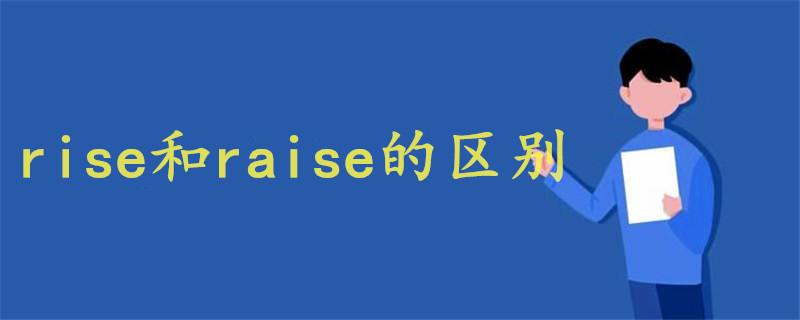rise和raise的区别举例:中文含义不同、用法不同。rise作为名词和动词,含义有增加、加薪、增强、上升、站起来等,是指具体的或抽象的事物由低向高移动;raise也可作名词和动词,含义有提升、提高、高地等,多指把某物从低处升到高处。

一、rise的意思及用法介绍
1、作为名词时,意为(数量或水平的)增加,提高;加薪;工资增长;(重要性、优势、权力等的)增强。
例句:The industry is feeling the effects of recent price rises.
这一行业已经感觉到了最近提价的影响。
I'm going to ask for a rise.
我打算要求加薪。
She watched the gentle rise and fall of his chest as he slept.
她看着他睡着时微微起伏的胸膛。
The church was built at the top of a small rise.
教堂建在一座小山顶上。
2、作为动词时,意为上升;攀升;提高;达到较高水平(或位置);起床;起立;站起来;升起。
例句:Smoke was rising from the chimney.
烟从烟囱里升起。
They rose from the table.
他们从餐桌旁站起身。
The sun rises in the east.
太阳从东方升起。
The price of gas rose.
煤气价格上涨了。
二、raise的意思及用法介绍
1、作为动词时,意为提升;举起;提起;(使)直立,站立;增加,提高(数量、水平等)。
例句:She raised the gun and fired.
她举枪射击。
Somehow we managed to raise her to her feet.
不管怎样,我们终于让她站了起来。
How can we raise standards in schools?
我们怎样才能提高学校的水平?
2、作为名词时,意为高地;上升;加薪。
例句:Should I ask my boss for a rise?
我应要求老板增加工资吗?
Within two months Kelly got a raise.
不到两个月,凯利就获得了加薪。










